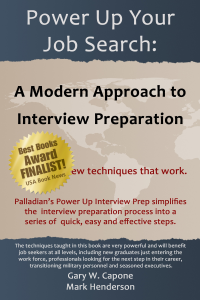An increasingly common interview style is the behavioral interview. With this interview, hiring managers attempt to assess candidates based on how they behaved in a variety of circumstances.
The rationale is to determine how an individual would perform by assessing how they have performed in similar situations in the past.
To interview effectively in a behavior based interview, job seekers need to be able to discuss, very specifically, what they have done. An essential first step in preparing is to develop a selection of stories that you can adapt to any question.
Behavior based questions typically follow the “Tell about a time when you…” format. Each question will address one or more attributes that are important for the job. The question is designed to help the hiring manager determine how you measure up with the attributes.
Many firms that utilize behavior based interviews will use the same or similar questions with every candidate. They do this to make is much easier to compare candidates.
To be successful, the most important thing is to have clear, concise and organized answers. Having interviewed a large number of job seekers, I’ve seen numerous individuals give answers that are difficult to follow. This makes a very poor impression. Another important factor is having a good grasp of you strengths and weaknesses. Many job seekers have difficulty assessing themselves and even more trouble communicating their assessment. If you want to make a positive impression, knowing what makes you attractive to an employer is critical.
Remember, you are competing against job seekers that have a similar background and the same level of experience (and perhaps more experience). The fact that you can do the job got you the interview. To land the job, you need to stand out.



